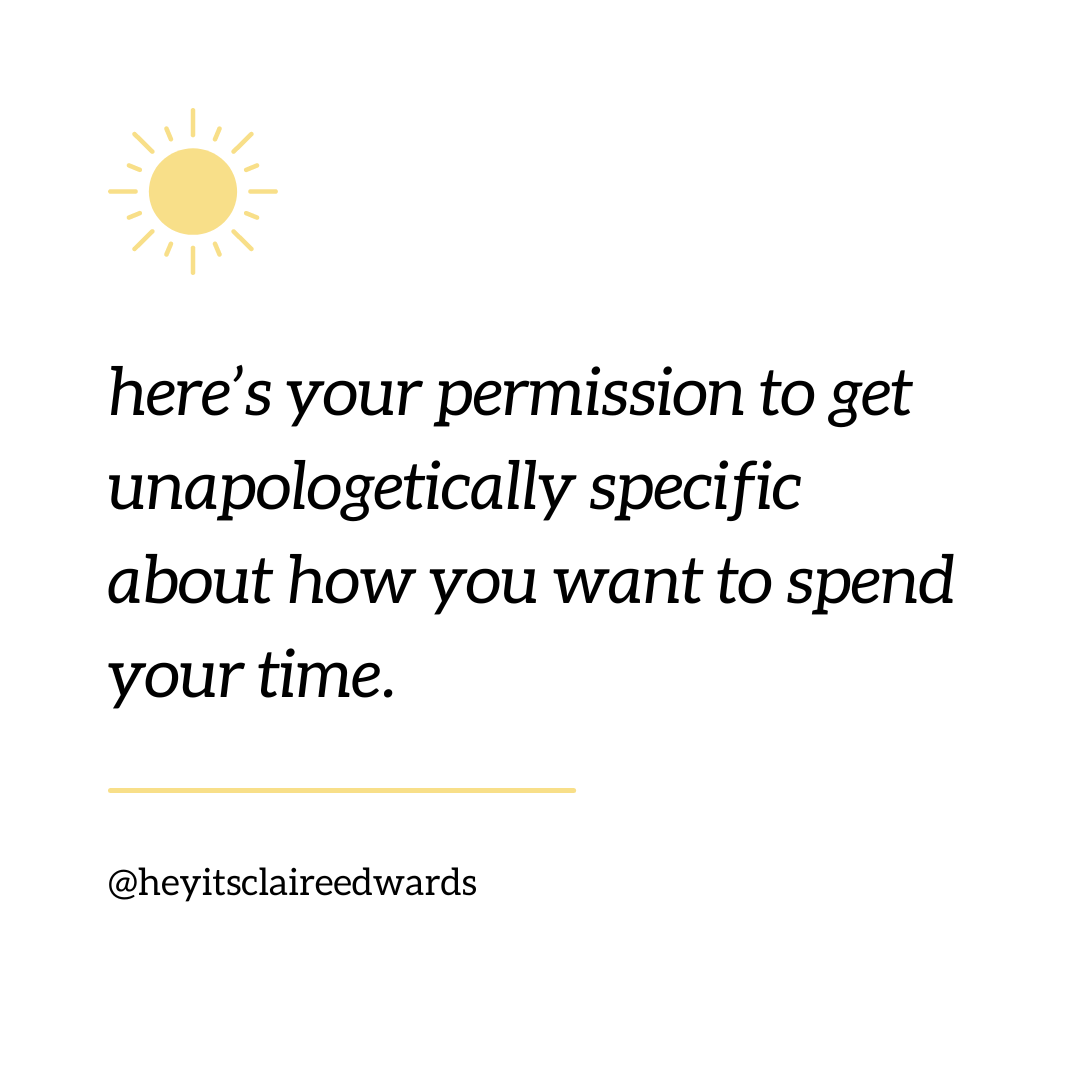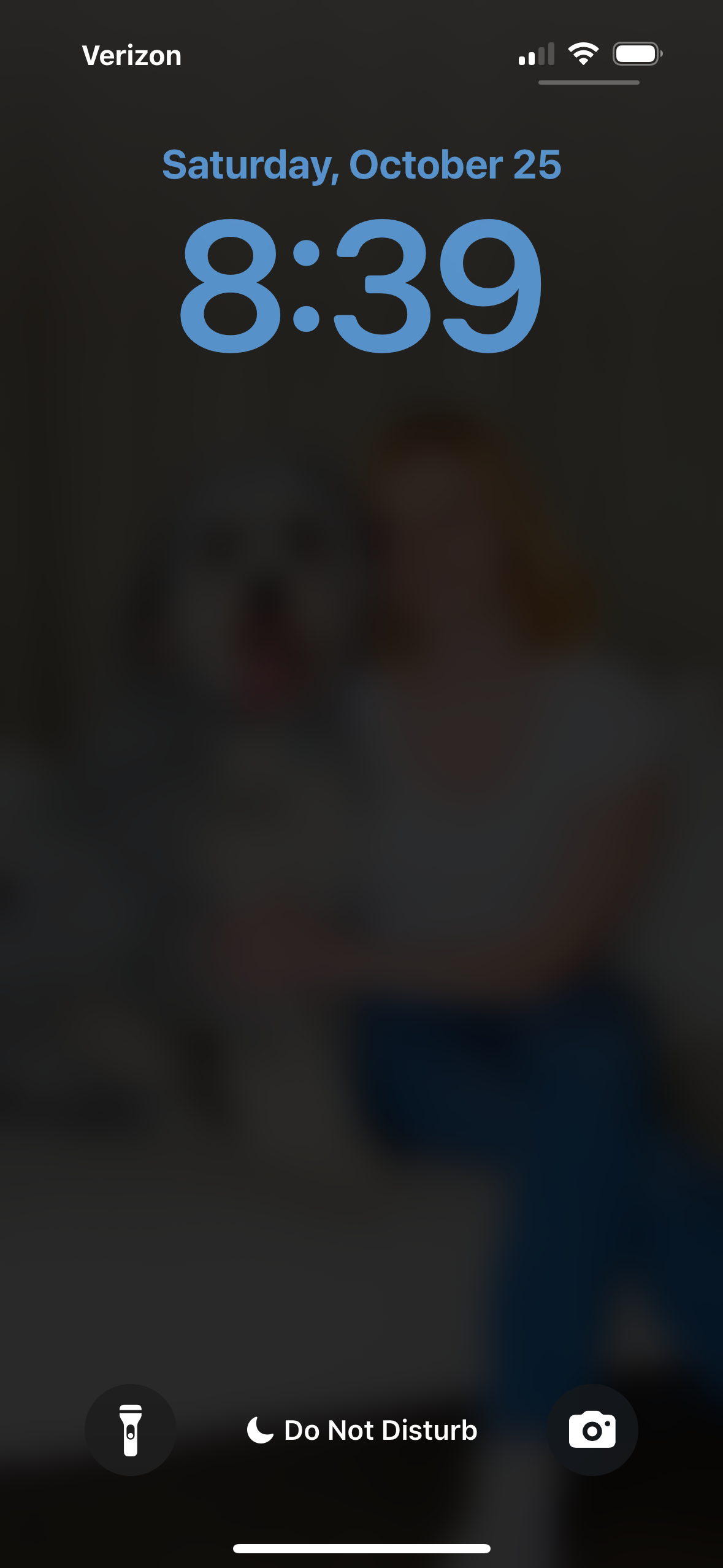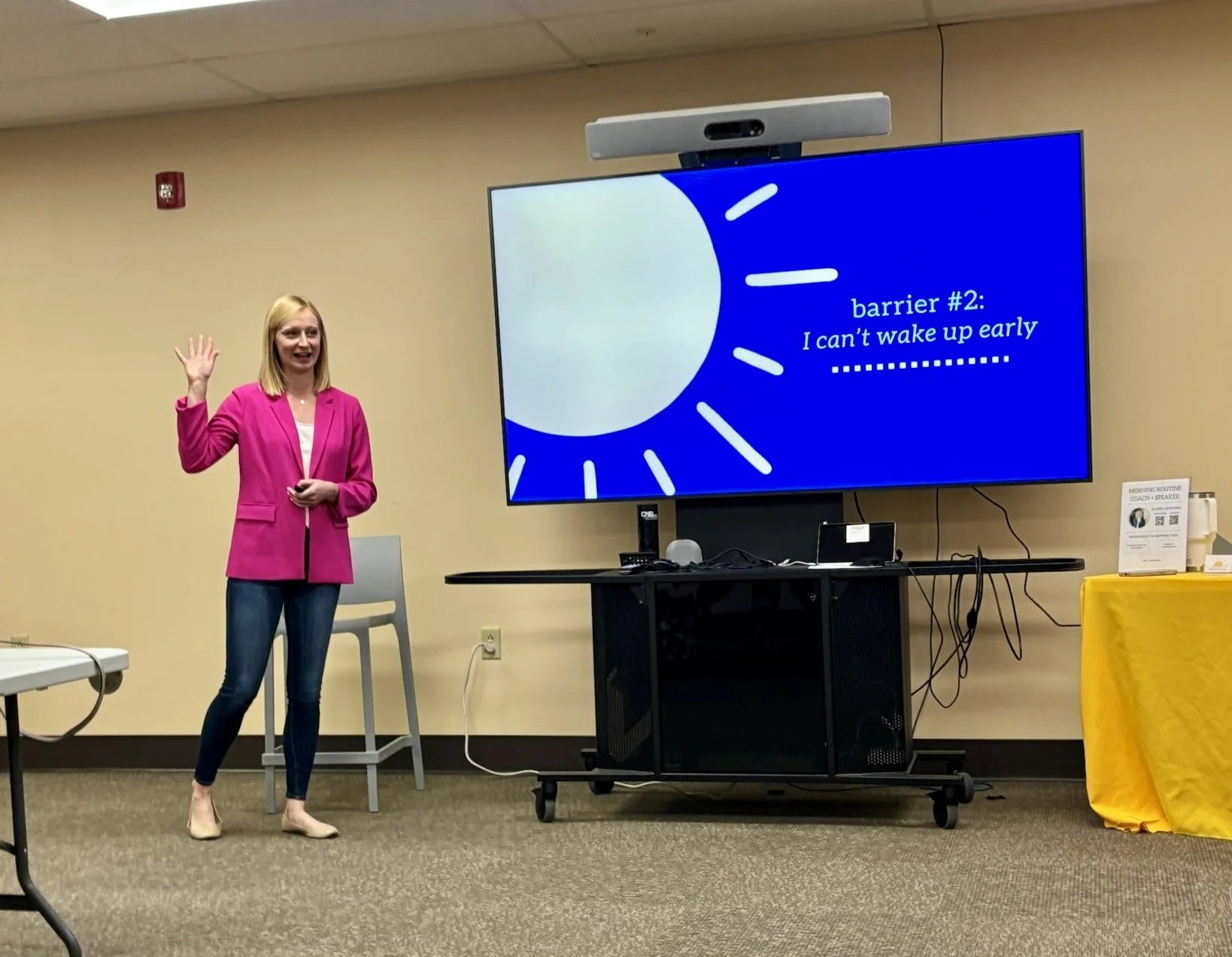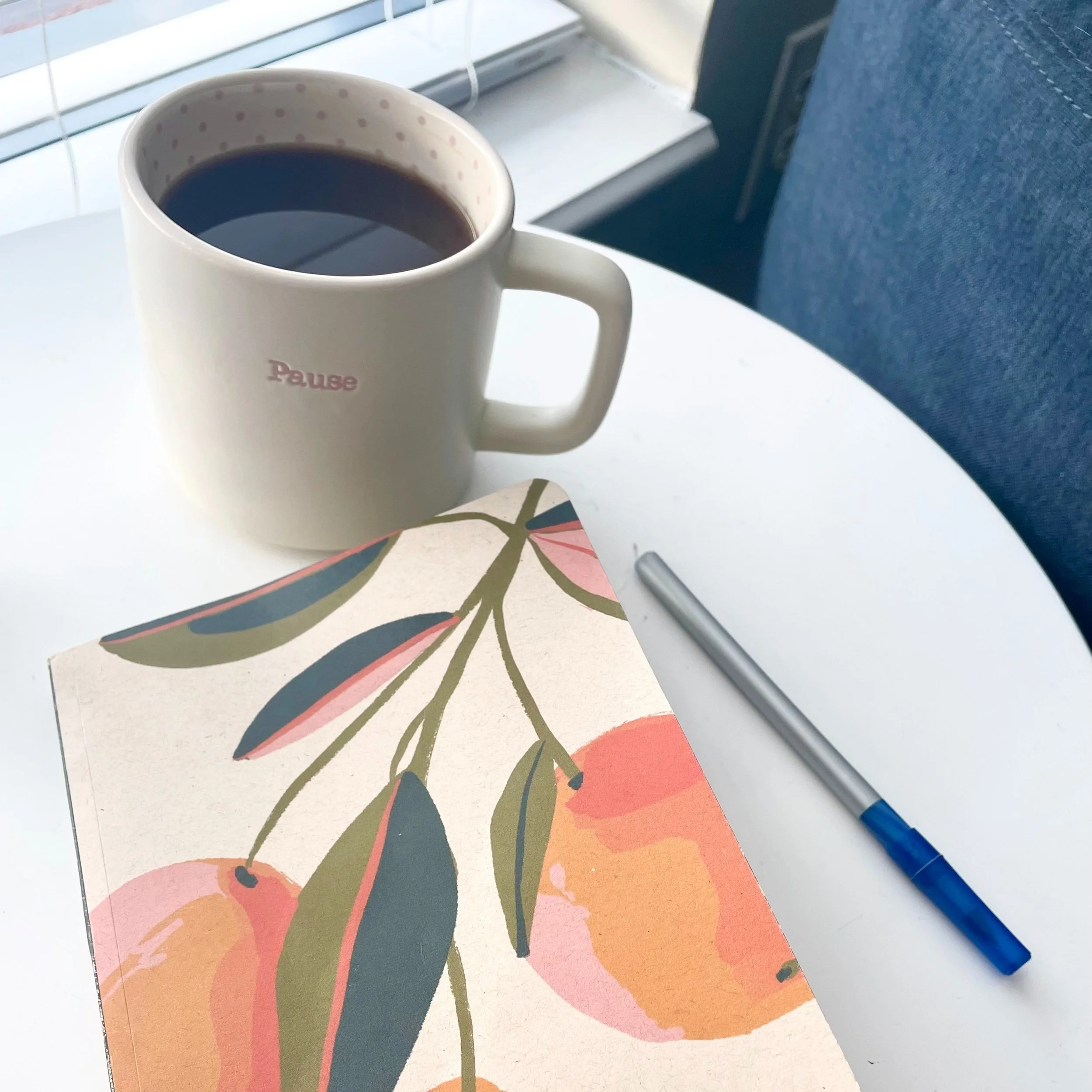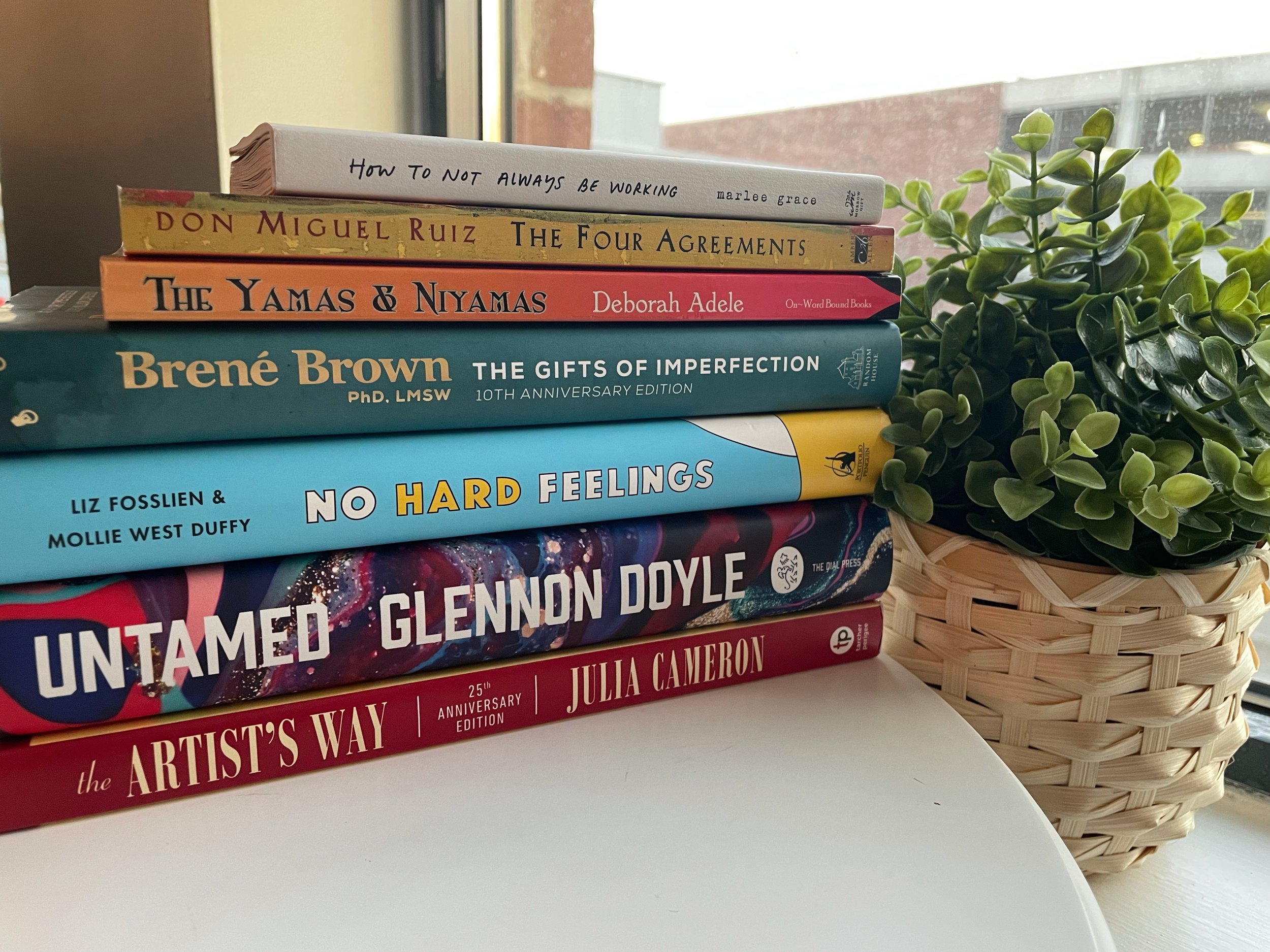
The other day I decided I was going to walk to a bookstore to buy a book instead of jumping on Amazon to buy it.
And wow was it my new favorite thing ever.
I’m someone who likes reading a physical book rather than reading it digitally or listening to an audio book. Makes sense that I would like this act of going to physically pick out a book.
I was standing in the self help section, the usual place you’ll find me, and saw a lady pick up The Artist’s Way by Julia Cameron.
I said to her “get it, one of my favorite books of all time!”
She responded with, “well I’m actually looking to give it as a gift.”
I said, “even better!”
It made me think, what other books would make me want to give a stranger my unsolicited opinion because I just loved the book so much? There aren’t many. Just the ones that change the way I look at the world and my life.
Here are a few books I would say “get it!” with no hesitation (in no particular order):
The Artist’s Way by Julia Cameron
First, you don’t have to be an artist to read this book, but aren’t we all artists in our own way? This book dives into creating a morning pages practice (journaling) and taking yourself on artist’s dates (your time to play & explore).
How to Not Always Be Working by Marlee Grace
I’ve read this book several times when I’m feeling burnt out or lacking inspiration. It simplifies the work vs. play distinction and challenges you to reconsider what is work, when you work, where you work, etc.
The Gifts of Imperfection by Brene Brown
Before reading the book, Brene advises taking her online Wholehearted Inventory quiz. The quiz coincides with the chapters of the book, focusing on letting go of perfectionism, comparison, and anxiety as a lifestyle, and cultivating self-compassion, creativity, and calm/stillness.
The Four Agreements by Don Miguel Ruiz
This is my favorite “book before bed” read as it simplifies the path to personal freedom. Helps remove the expectations from ourselves and others, and emphasizes the power of truthfulness and trying your best.
The Yamas and Niyamas by Deborah Adele
This book explains the yoga principles, which have really become life principles for me. Each principle builds on itself and starts with ahimsa, meaning nonviolence or do no harm.
Glennon takes us through her stories of being let out of the cage and no longer needing to be tamed, while other stories are about setting boundaries to what she lets into her life. I love her writing style as somehow she always slips a lesson into a story she hooked you into.
No Hard Feelings by Liz Fosslien and Molly Duffy West
That self help book with pictures you’ve been looking for. Liz & Molly beautifully show us through their words and illustrations how to not put so much pressure on ourselves, our work, and live a little. Many of the illustrations I found myself saying “yep that’s me every day.”
I’m building my 2022 book list! What books have changed the way you look at the world and you would tell a stranger to “get it?!” Comment below or send me an email.






